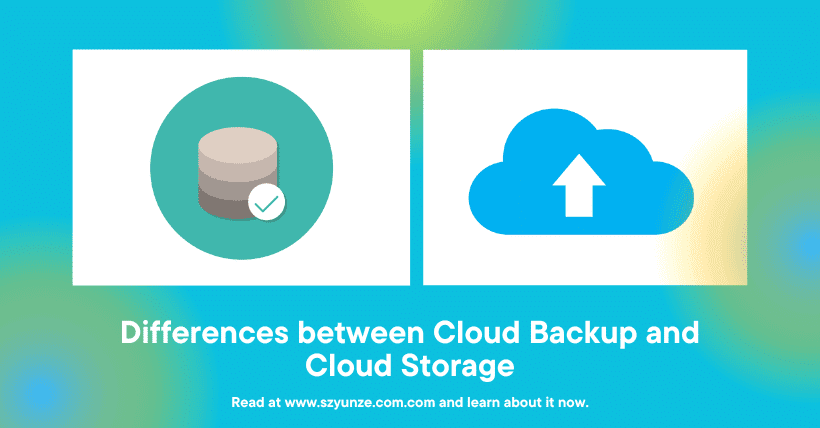
Data Backup is an essential component of good IT management. The value of corporate data is often underestimated, and the implementation of detailed recovery processes is also overlooked. Only when data is lost and cannot be recovered, the importance of establishing such programs is realized. Backing up or storing data in the cloud ensures protection against theft, fire, and other local disasters.
Next, I will analyze the differences between cloud backup and cloud storage.
What is Cloud Backup?
Cloud backup allows us to back up and restore large amounts of data. Commercial cloud backup services offer high storage capacity for backing up PCs or servers. Backup frequencies can be scheduled at specific times and run automatically.
Data is compressed, encrypted, and transmitted to servers in secure data centers. If any data is lost, it can be quickly recovered using the backups. Cloud backup provides many of the same features as cloud storage, including online access to files.
- Advantages: Cloud backup offers comprehensive protection against data loss and enables quick recovery of the entire system. The transmission is fully encrypted, ensuring your data is always secure.
- Disadvantages: Sharing and collaborative features are unavailable. Backups are specific to the computer and decrypted using unique keys.
- Cost: Backup solutions typically have lower costs compared to cloud storage, as they offer fewer features and do not provide real-time access.
What is Cloud Storage?
Cloud storage allows us to synchronize a portion of our hard drive with an online repository. Any changes made locally are quickly copied to the online storage, mirroring the files for backup. The storage capacity is usually limited, making it less ideal for enterprise use.
There are two main types of cloud storage. Files can be stored and accessed through the provider’s website, or they can be stored and accessed through a local client installed on our PC, allowing direct editing of files from the cloud. Files can be modified, shared, or transferred to other users online.
- Advantages: Cloud storage facilitates file sharing, collaboration, and access from any computer via the provider’s website.
- Disadvantages: Limited storage capacity means only a partial backup of the PC, making full recovery impossible. Encryption is typically done only on the server side, making data transmission vulnerable to threats.
- Cost: Cloud storage solutions are more expensive per GB, but they offer more features, such as the ability to share files.
Key Differences between Cloud Backup and Cloud Storage
- Purpose and Function: The primary distinction between cloud backup and cloud storage lies in their purpose. Cloud backup focuses on data protection and recovery, while cloud storage prioritizes accessibility and seamless file management.
- Data Backup and Retrieval: Cloud backup regularly schedules automatic backups, ensuring that all data changes are captured and can be restored in case of data loss. Cloud storage, on the other hand, does not always offer automatic backups, and users need to manually upload and update files.
- Security and Redundancy: Cloud backup solutions often provide enhanced security features, such as encryption and secure data centers, to protect sensitive information. Cloud storage also employs encryption but may have fewer backup and redundancy options compared to cloud backup services.
- Cost and Storage Limitations: Cloud backup services may have higher costs due to the added features and frequent data backups. Cloud storage, on the other hand, maybe more cost-effective for users who require large storage space without the need for regular backups.
Conclusion
Cloud storage is highly suitable for managing a small number of files that undergo frequent changes and need to be shared or accessed from multiple locations. On the other hand, cloud backup solutions are ideal for securely backing up a large volume of data that can be used to restore the entire system. For most businesses, a cloud backup solution proves to be the most beneficial, but some enterprises might benefit from running both solutions. Regardless of the most suitable approach for our business, backing up data is crucial and should not be delayed until it’s too late!
Recommended Reading:
- AI Chip Innovations for Data Centers & Cloud in the Future
- Medical Integration: Pioneering Storage Chip Tech
- Jensen Huang Talks RTX 5090 Price at CES 2025 Interview
- Trash Sorting Analogy for Cloud, Edge, and End Computing

Disclaimer: YUNZE maintains a neutral stance on all original and reposted articles, and the views expressed therein. The articles shared are solely intended for reader learning and exchange. Copyright for articles, images, and other content remains with the original authors. If there is any infringement, please contact us for removal.


